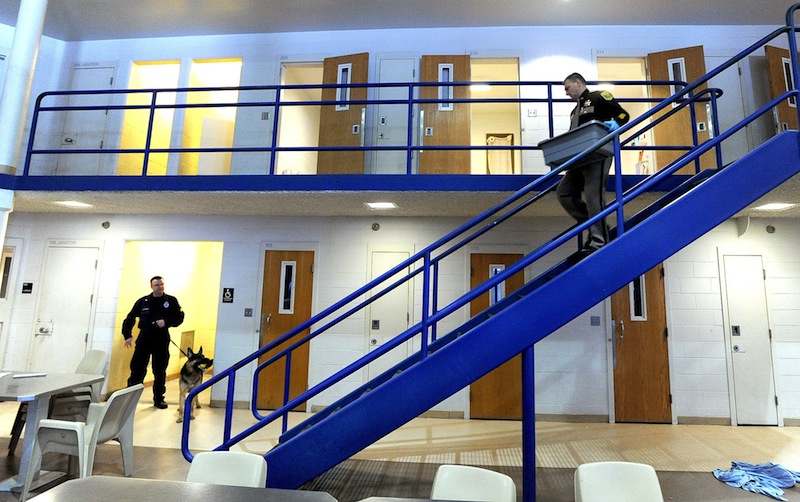PORTLAND — Maine’s highest court is considering a proposal that would increase from 48 to 72 hours the maximum amount of time a person can be held in jail before appearing before a judge.
The proposed change to Maine’s rules of criminal procedure comes in response to concerns raised by an eastern Maine sheriff who says he’s had to release arrestees simply because a judge wasn’t available within the maximum time allowed.
Washington County Sheriff Donnie Smith said he’s had to drop charges against people arrested on violent and nonviolent crimes because a court appearance couldn’t be scheduled within two days of their arrest. In one case, he said, he had to release a man who had threatened a neighbor’s life.
“This is a case where a man held a gun to a woman’s head and pulled the trigger with an empty chamber,” he said. “Are we going to wait until somebody gets killed before we say maybe these people should be arraigned quicker?”
The Maine Supreme Judicial Court routinely considers changes to the rules of criminal procedure in an effort to improve the state’s judicial system. It has scheduled a public hearing Sept. 12 on the 72-hour proposal. A committee made up of prosecutors and defense lawyers recommended the change after hearing about the sheriff’s problems.
But opposition is lining up, and even the sheriff says it’s not the best remedy.
At the Washington County Courthouse in Machias, judges hold hearings on Mondays and Wednesdays and most Fridays, Smith said. Extending the time limit to 72 hours will help, but a better solution would be to have judges hold more hearings by video-conference from remote locations, he said.
The Maine Association of Criminal Defense Lawyers says initial court appearances should be made sooner than 48 hours, not later. Three days is too long to wait for a judge to advise defendants of the substance of the charges against them and their right to retain counsel and determine their bail conditions, the association said.
Because the time limit excludes weekends and holidays, it’s possible a person could be jailed for five or six days before seeing a judge. In some cases, that could amount to a person being held in jail before an initial court appearance longer than his or her sentence would be if convicted.
“The bottom line is that it’s fundamentally unfair for people to just sit around in jail because somebody doesn’t feel like bringing them to court or there isn’t a judge on the bench,” said Portland attorney Toby Dilworth, the association president.
In a letter to the supreme court clerk, Dilworth wrote: “… in the 21st century there is little reason for authorities to take more than two business days to present an arrestee to a judge.”
Professor Jim Burke at the University of Maine School of Law said he considers 72 hours to be excessive and constitutionally suspect. He noted that the Maine Constitution says no person shall be deprived of life, liberty or property without due process of law, while also prohibiting the unreasonable seizure of a person without a warrant.
“Those are broad phrases, but the general theory is that if you aren’t picked up on a warrant the government can’t hold you too long without bringing you in front of a court because that would be a deprivation of liberty without due process,” he said.
Copy the Story LinkSend questions/comments to the editors.



Success. Please wait for the page to reload. If the page does not reload within 5 seconds, please refresh the page.
Enter your email and password to access comments.
Hi, to comment on stories you must . This profile is in addition to your subscription and website login.
Already have a commenting profile? .
Invalid username/password.
Please check your email to confirm and complete your registration.
Only subscribers are eligible to post comments. Please subscribe or login first for digital access. Here’s why.
Use the form below to reset your password. When you've submitted your account email, we will send an email with a reset code.